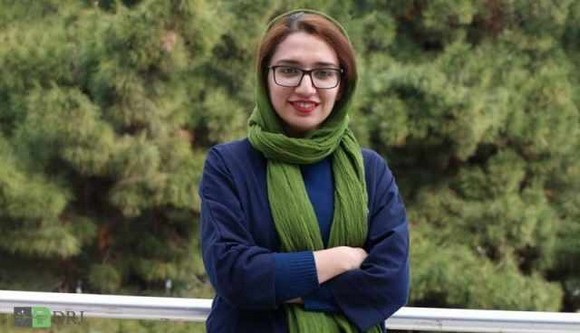Muhammad Iqbal
Muhammad Iqbal
Muhammad Iqbal was one of the last Muslim thinkers of the colonial era whose life , thought and work deeply influenced the course of history . He was born in Sialkot , a small town in the Punjab , ( then in India ) , at a time when the British Raj in India was at its zenith . After his initial schooling ( 1893-95 ) in Sialkot , Iqbal went to Government College , Lahore and obtained a BA in Arabic and Philosophy ( 1897 ) . In 1899 , he obtained his Master’s degree in Philosophy from the Government College , Lahore and then joined the Oriental College , Lahore as Reader . In 1900 , he read his poem “Nala-e-Yateem” ( “The Wail of an Orphan” ) at the annual meeting of the Anjuman-e-Himayat-e-Islam at Lahore; this public recitation marks the beginning of a career that would span 38 years and produce some of the most moving poetry of the early twentieth century in the Muslim world .
Iqbal obtained his Ph . D . from the Munich University ( 1907 ); his PhD thesis , Development of Metaphysics in Persia remains a major work in that field . After a short stay in England , he returned to India where a short teaching career was interrupted by major political involvement in the movement for freedom from the British Raj .
Iqbal’s poetry and political activities were to serve the cause of the freedom movement in the Indian subcontinent in the most direct and forceful manner . His poetry , which remains to this day the most exquisite and eloquent articulation of Muslim ethos , is steeped in the classical syntax of Persian poetry but it contains a new message of emancipation , hope and struggle .
Iqbal’s philosophical ideas were summed up in his Reconstruction of Religious Thought in Islam , first published in 1930 in a poor quality version . This edition , which is full of errors has been replace by numerous subsequent editions and the book has been translated into several languages , including French , Arabic , Persian , Punjabi and German . The Reconstruction is Iqbal’s major philosophical work which deals with numerous aspects of Islamic thought and philosophy including the challenges faced by it during the colonial era .
Iqbal , however , did not deal with the relationship of Islam and science as a separate sub-subject . But he does comment on the relationship between science and the nature of religious experience . Like many reformers of his time and the generation before him , he also attempts to reconstruct the argument that posits achievements of the Islamic civilizations in natural sciences as an evidence for its excellence . This approach , which is a trade mark of many reformers of the nineteenth century views modern science as an achievement of the Western civilization which could not have occurred without the eight centuries of Islamic scientific tradition . Whatever the merits of this discourse for the immediate needs of these reformers , this approach does not seek to built any discourse on the nature of modern science and its relationship with Islam; rather , it attempts to inspire Muslims to once again become leaders in the production of scientific knowledge . The following excerpt provides a glimpse of Iqbal’s views on the subject .
An excerpt from Muhammad Iqbal’s The Reconstruction of Religious Thought in Islam , Institute of Islamic Culture , Lahore ( 1986 ) , pp . 105-110 .
But the universe , as a collection of finite things , presents itself as a kind of island situated in a pure vacuity to which time , regarded as a series of mutually exclusive moments , is nothing and does nothing . Such a vision of the universe leads the reflecting mind nowhere . The thought of a limit to perceptual space and time staggers the mind . The finite , as such , is an idol obstructing the movement of the mind; or , in order to overpass its bounds , the mind must overcome serial time and the pure vacuity of perceptual space . And verily towards thy God is the limit , says the Qur an ( 53:42 ) . This verse embodies one of the deepest thoughts in the Qur an; for it definitely suggests that the ultimate limit is to be sought not in the direction of stars , but in an infinite cosmic life and spirituality . Now the intellectual journey towards this ultimate limit is long and arduous; and in this effort , too , the thought of Islam appears to have moved in a direction entirely different to the Greeks . The ideal of the Greeks , as Spengler tells us , was proportion , not infinity . The physical presentness of the finite with its well-defined limits alone absorbed the mind of the Greeks . In the history of Muslim culture , on the other hand , we find that both in the realms of pure intellect and religious psychology , by which term I mean higher Sufism , the ideal revealed is the possession and enjoyment of the Infinite . In a culture , with such an attitude , the problem of space and time becomes a question of life and death . In one of these lectures I have already given you some idea of the way in which the problem of time and space presented itself to Muslim thinkers , especially the Ash arite . One reason why the atomism of Democritus never became popular in the world of Islam is that it involves the assumption of an absolute space . The Ash arite were , therefore , driven to develop a different kind of atomism , and tried to overcome the difficulties of perceptual space in a manner similar to modern atomism . On the side of Mathematics it must be remembered that since the days of Ptolemy ( A . D . 87165 ) till the time of Nasir Tusi ( A . D . 1201-74 ) nobody gave serious thought to the difficulties of demonstrating the certitude of Euclid s parallel postulate on the basis of perceptual space . It was Tusi who first disturbed the calm which had prevailed in the world of Mathematics for a thousand years; and in his effort to improve the postulate realized the necessity of abandoning perceptual space . He thus furnished a basis , however slight , for the hyperspace movement of our time . It was , however , al-Birum who , in his approach to the modern mathematical idea of function saw , from a purely scientific point of view , the insufficiency of a static view of the universe . This again is a clear departure from the Greek view . The function-idea introduces the element of time in our world picture . It turns the fixed into the variable , and sees the universe not as being but as becoming . Spengler thinks that the mathematical idea of function is the symbol of the West of which no other culture gives even a hint . In view of al-Biruni s generalizing Newton s formula of interpolation from trignometrical function to any function whatever , Spengler s claim has no foundation in fact . The transformation of the Greek concept of number from pure magnitude to pure relation really began with Khwarizmis movement from Arithmetic to Algebra . AI-Biruni took a definite step forward towards what Spengler describes as chronological number which signifies the mind s passage from being to becoming . Indeed , more recent developments in European mathematics tend rather to deprive time of its living historical character , and to reduce it to a mere representation of space . That is why Whitehead s view of Relativity is likely to appeal to Muslim students more than that of Einstein in whose theory time loses its character of passage and mysteriously translates itself into utter space .
Side by side with the progress of mathematical thought in Islam we find the idea of evolution gradually shaping itself . It was Jahiz who was the first to note the changes in bird-life caused by migrations . Later Ibn Maskawaih who was a contemporary of al-Biruni gave it the shape of a more definite theory , and adopted it in his theological work — Al-Fauz al-Asghar . I reproduce here the substance of his evolutionary hypothesis , not because of its scientific value , but because of the light which it throws on the direction in which Muslim thought was moving .
According to Ibn Maskawaih plant-life at the lowest stage of evolution does not need any seed for its birth and growth . Nor does it perpetuate its species by means of the seed . This kind of plant-life differs from minerals only in some little power of movement which grows in higher forms , and reveals itself further in that the plant spreads out its branches , and perpetuates its species by means of the seed . The power of movement gradually grows farther until we reach trees which possess a trunk , leaves , and fruit . At a higher stage of evolution stand forms of plant-life which need better soil and climate for their growth . The last stage of development is reached in vine and date-palm which stand , as it were , on the threshold of animal life . In the date-palm a clear sex-distinction appears . Besides roots and fibres it develops something which functions like the animal brain , on the integrity of which depends the life of the date-palm . This is the highest stage in the development of plant4ife , and a prelude to animal life . The first forward step towards animal life is freedom from earth-rootedness which is the germ of conscious movement . This is the initial stage of animality in which the sense of touch is the first , and the sense of sight is the last to appear . With the development of the senses the animal acquires freedom of movement , as in the case of worms , reptiles , ants , and bees . Animality reaches its perfection in the horse among quadrupeds and the falcon among birds , and finally arrives at the frontier of humanity in the ape which is just a degree below man in the scale of evolution . Further evolution brings physiological changes with a growing power of discrimination and spirituality until humanity passes from barbarism to civilization .
But it is really religious psychology , as in Iraqi and Khawa jah Muhammad Parsa which brings us much nearer to our modern ways of looking at the problem of space and time . Iraqi s view of time-stratifications I have given you before . I will now give you the substance of his view of space .
According to Iraqi the existence of some kind of space in relation to God is clear from the following verses of the Qur an:
Dost thou not see that God knoweth all that is in the heavens and all that is in the earth? Three persons speak not privately together , but He is their fourth; nor five , but He is their sixth; nor fewer nor more , wherever they be He is with them . ( 58:7 )
Ye shall not be employed in affairs , nor shall ye read a text out of Qur an , nor shall ye do any work , but We will be witness over you when you are engaged therein; and the weight of an atom on earth in heaven escapeth not thy Lord; nor is there aught that is less than this or greater , but it is in the Perspicuous Book ( 10:61 ) .
We created man , and We know what his soul whispereth to him and We are closer to him than his neck-vein ( 50:16 )
But we must not forget that the words proximity , contact , and mutual separation which apply to material bodies do not apply to God . Divine life is in touch with the whole universe on the analogy of the soul s contact with the body . The soul is neither inside nor outside the body; neither proximate to nor separate from it . Yet its contact with every atom of the body is real , and it is impossible to conceive this contact except by positing some kind of space which befits the subtleness of the soul . The existence of space in relation to the life of God , therefore , cannot be denied; only we should carefully define the kind of space which may be predicated of the Absoluteness of God . Now , there are three kinds of space—the space of material bodies , the space of immaterial beings , and the space of God . The space of material bodies is further divided into three kinds . First , the space of gross bodies of which we predicate roominess . In this space movement takes time , bodies occupy their respective places and resist displacement . Secondly , the space of subtle bodies , e . g . air and sound . In this space too bodies resist each other , and their movement is measurable in terms of time which , however , appears to be different to the time of gross bodies . The air in a tube must be displaced before other air can enter into it; and the time of sound-waves is practically nothing compared to the time of gross bodies . Thirdly , we have the space of light . The light of the sun instantly reaches the remotest limits of the earth . Thus in the velocity of light and sound time is reduced almost to zero . It is , therefore , clear that the space of light is different to the space of air and sound . There is , however , a more effective argument than this . The light of a candle spreads in all directions in a room without displacing the air in the room; and this shows that the space of light is more subtle than the space of air which has no entry into the space of light . In view of the close proximity of these spaces , however , it is not possible to distinguish the one from the other except by purely intellectual analysis and spiritual experience . Again , in the hot water the two opposites—fire and water—which appear to interpenetrate each other cannot , in view of their respective natures , exist in the same space . The fact cannot be explained except on the supposition that the spaces of the two substances , though closely proximate to each other , are nevertheless distinct . But while the element of distance is not entirely absent , there is no possibility of mutual resistance in the space of light . The light of a candle caches up to a certain point only , and the lights of a hundred candles intermingle in the same room without displacing one another .
Having thus described the spaces of physical bodies possessing various degrees of subtleness Iraqi proceeds briefly to describe the main varieties of space operated upon by the various classes of imnmaterial beings , e . g . angels . The element of distance is not entirely absent from these spaces; for immaterial beings , while they can easily pass through stone walls , cannot altogether dispense with motion which , according to Iraqi , is evidence of imperfection in spirituality . The highest point in the scale of spatial freedom is reached by the human soul which , in its unique essence , is neither at rest nor in motion . Thus passing through the infinite varieties of space we reach the Divine space which is absolutely free from all dimensions and constitutes the meeting point of all infinities .
From this summary of Iraqi s view you will see how a cultured Muslim Sufi intellectually interpreted his spiritual experience of time and space in an age which had no idea of the theories and concepts of modern Mathematics and Physics . ‘Iraqi is really trying to reach the concept of space as a dynamic appearance . His mind seems to be vaguely struggling with the concept of space as an infinite continuum; yet he was unable to see the full implications of his thought partly because he was not mathematician and partly because of his natural prejudice in favour of the traditional Aristotelian idea of a fixed universe . Again , the interpenetration of the super-spatial here and per-eternal now in the Ultimate Reality suggests the modern notion of space-time which Professor Alexander , in his lectures on Space , Time , and Deity , regards as the matrix of all things . A keener insight into the nature of time would have led Iraqi to see that time is more fundamental of the two; and that it is not a mere metaphor to say , as Professor Alexander does say , that time is the mind of space . Iraqi conceives God s relation to the universe on the analogy of the relation of the human soul to the body; but , instead of philosophically reaching this position through a criticism of the spatial and temporal aspects of experience , he simply postulates it on the basis of his spiritual experience . It is not sufficient merely to reduce space and time to a vanishing point-instant . The philosophical path that leads to God as the omnipsyche of the universe lies through the discovery of living thought as the ultimate principle of space-time . Iraqi s mind , no doubt , moved in the right direction , but his Aristotelian prejudices , coupled with a lack of psychological analysis , blocked his progress . With his view that Divine Time is utterly devoid of change a view obviously based on an inadequate analysis of conscious experience—it was not possible for him to discover the relation between Divine Time and serial time , and to reach , through this discovery , the essentially Islamic idea of continuous creation which means a growing universe .
Thus all lines of Muslim thought converge on a dynamic conception of the universe . This view is further reinforced by Ibn Maskawaih s theory of life as an evolutionary movement , and Ibn Khaldun s view of history . History or , in the language of the Qur an , the days of God , is the third source of human knowledge according to the Qur an . It is one of the most essential teachings of the Qur an that nations are collectively judged , and suffer for their misdeeds here and now . In order to establish this proposition , the Qur an constantly cites historical instances , and urges upon the reader to reflect on the past and present experience of mankind . Of old did We send Moses with Our signs , and said to him: Bring forth thy people from the darkness into the light , and remind them of the days of God . Verily , in this are signs for every patient , grateful person ( 14:5 ) .
And among those whom We had created are a people who guide others with truth , and in accordance therewith act justly . But as for those who treat Our signs as ties , We gradually bring them down by means of which they know not; and though I lengthen their days , verily . My stratagem is effectual ( 7:181-83 ) .
Already , before your time , have precedents been made . Traverse the Earth then , and see what hath been the end of those who falsify the signs of God . ’ ( 3:137 )
‘If a wound hath befallen you , a wound like it hath already befallen others; We alternate the days of successes and reverses among peoples . ’ ( 3:140 )
‘Every nation hath its fixed period . ’( 7:34 )













































